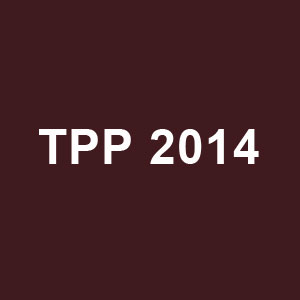Staging the Archival Baroque: Ben Rubin and Elevator Repair Service Bridge Philosophy and Performance
I propose a paper that reflects on theories of the subject in relation to recent philosophical emphases on the baroque and the archive – the subject of my book in progress, The Archival Event @ New Media Art. While the archive has received lively attention in the performance field from authors such as Taylor and Cvetkovich, I return its theorization to its roots in notions of the library and in the philosophies of the archive articulated by Foucault and Derrida. I propose to stage this theorization in dialogue with the American artists Ben Rubin and Elevator Repair Service (ERS) who have collaborated between energetic live performances of literary texts and sophisticated new media platforms of archives, performance and exhibition.
These artists capitalize on what I call the baroque trope of the informational interconnectivity of networks, libraries, and archives in order to position performance as an enigmatic event of cross-cultural exchange. Establishing an opening dialogue between Derrida and Foucault’s theorizations of the archive and Deleuze’s thought’s on cinematic automata and baroque folds, my paper will maintain that Rubin’s software generators archive the intellectual automata of online data culture in a way that stages the surging thought of a digitally baroque archive. In providing ERS with interactive platforms of performance, Rubin extends his own interactive installations of newspaper archives, chat room circulation, library book circulation, and Wikileaks documents into the realm of performance. Here the performers join with their participants in responding to their interpellation by the data fields in which they operate. Equally important, reflecting Leibniz’s and Deleuze’s reflections on the baroque, the disparate articulations of these performances invite participants to embrace the incompossible energetics of frequently conflicting cultural assessments of particular data archives. To some extent we could say that performance itself becomes the archival event of digital data fields.
As a 1970s American graduate student studying philosophy and theatre in Paris, Timothy Murray balanced his intense tutelage in philosophy from Jean-François Lyotard, Louis Marin, Jacques Derrida, and Samuel Weber with studies in the semiotics of theatre under Anne Ubersfeld. He has worked between performance and philosophy since graduate training in Paris under Lyotard, Ubersfeld, Marin, and Derrida. He introduced “theory” to theatre in the mid-1980s as Editor of Theatre Journal, and as editor of a collection of French philosophical essays, Mimesis, Masochism & Mime: The Politics of Performance in Contemporary French Thought (Michigan 1998). The philosophical approach of his books blend analyses of performance, art, film, video, and new media: Theatrical Legitimation (Oxford 1987), Like a Film (Routledge 1993), Drama Trauma (Routledge 1997), and Digital Baroque (Minnesota 2008). He is Professor Comparative Literature and English and Curator of the Rose Goldsen Archive of New Media Art at Cornell University.

